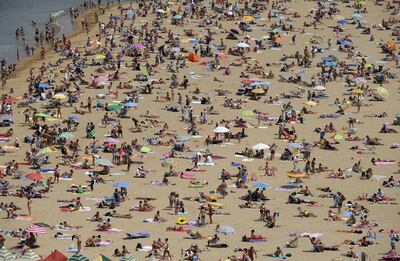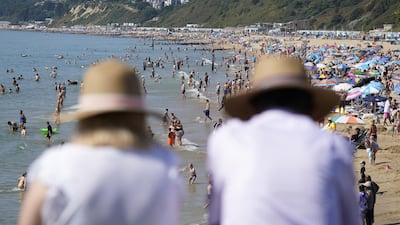Some of us will have learnt the hard way the importance of putting on sun cream when out and about in hot weather. What will be news to many is that experts say the same protection should be used every day, even on cloudy ones and even if only staying indoors. On top of that, it needs to be reapplied every two hours.
Clothing that covers exposed skin should also be considered.
It might sound like overkill. But dermatologists constantly point out that our skin is one of the most important organs in the body. It is the first barrier of defence against germs and radiation, is crucial in regulating temperature and in sensing our environment.
And yet, statistics show that we do not take enough care of it. One in every three cancers diagnosed in the world today is a skin cancer. According to the World Cancer Research Fund International, there were more than 320,000 cases of the disease globally in 2020. Melanoma, a type of it, is the leading cancer diagnosis in young people.

Earlier this week, doctors warned in The National that UAE motorists should apply sunblock before driving to cut the risk this summer, especially between the hours of 10am and 4pm. “It’s a mistake to think that you are safe because you are inside and behind the wheel of the car,” explained Dr Jyothish George, a specialist dermatologist in Dubai. “You need to take the same precautions that you would any other time you are out in the sun, especially if you are driving for longer periods.”
There are two main reasons behind the need for extra vigilance in the UAE. The first is the environment. UV, the radiation responsible for most skin damage, is intense, and arrives in particularly high concentrations between March and September. Dr Aashim Singh Kukreja told The National that levels are becoming even higher due to the depletion of the ozone layer – a part of the earth's stratosphere that absorbs most of the radiation – due to pollution. Another factor is the way sand, like snow, reflects light, leading to yet more exposure.
The diverse makeup of society is the second reason. People with lighter skin, who tend to hail from countries where there is less sun exposure, are most susceptible to damage. Many choose to enjoy the plethora of outdoor activities in the UAE, hence the importance of seeking shade regularly.
It is worth noting that skin damage is a problem wider than cancer. While less serious medically, it is estimated that 90 per cent of ageing is caused by sun exposure.
The UAE has one of the best healthcare systems on the planet, and a silver lining of skin cancer is that it is one of the most treatable forms of the illness. But prevention is still better than cure. A 2017 report by the Australian government called the disease: "Our National Cancer." The country faces a similar set of contributing to the UAE: a UV-intense environment and a society at higher risk. By listening to the advice of doctors, UAE residents can massively reduce the impact of sun damage in their lives. Some of the expert guidance might be surprising, but it is all potentially life-saving.


